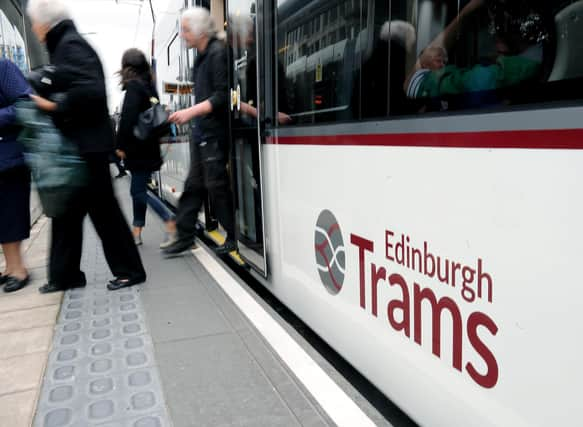UK government might help pay for major new tram schemes in Edinburgh but will SNP ask? – John McLellan


Far more complex than the airport-York Place line which ended up costing £776m and about three times the length of the Newhaven link which is costing a minimum of £207m with the hardware already bought and extensive preparatory work done, who knows what the bill would have been.
It’s a fair assumption the £760m the council expected from the congestion charge over 20 years wouldn’t have covered it, or the other city-wide transport improvements it was supposed to fund, and so another big mortgage set against increasing charges and future fare income would have been inevitable.
Advertisement
Hide AdAdvertisement
Hide AdThe plan was so full of holes that it should have been no surprise the council lost the referendum by 133,678 votes to 45,965, with a turnout of 61 per cent which dwarfs council elections. The current administration would probably just call it a consultation, claim “thousands of residents back tram masterplan” and carry on, but those were simpler times.
The irony is that of all the tram proposals, a line from Newhaven to the Royal Infirmary was the most economically viable because the route was densely populated on either side and linked major public infrastructure, so the bits which were abandoned had the best chance of paying for themselves, even if they were the most challenging.
But its back on the agenda because it’s included in Transport Scotland’s Strategic Transport Projects Review which sets out priorities for the next 20 years, and marks a significant change from the aftermath of the congestion charge defeat when the Scottish government rejected a bid for £198m to save the scheme. After the SNP took power in 2007, it backed the local party’s opposition to the tram project, ended Transport Scotland’s involvement and let the council bash on to financial disaster.
Emboldened by changing government attitudes, a south-east tram line to the new Shawfair station and the still-questionable South Sub revival will also feature large in the council’s new mobility masterplan.
Advertisement
Hide AdAdvertisement
Hide AdBut with no clear way in the next two years to fund existing services, even at current over-stretched levels the local authority can’t throw more money at grandiose infrastructure schemes it can’t afford.
Setting aside the massive disruption, the principle of getting more buses off the roads and replacing them with cleaner trams or hybrid light trains which can carry more people is fine, but without significant government intervention the city would be bankrupt, if it isn’t already by then.
So which taxpayers should foot the bill? With over a tenth of all UK taxes generated in the City of London and around 30 per cent of UK “economy” taxes like income tax and VAT generated in Greater London, there is an argument for a UK government contribution too, despite transport being devolved.
The £1.5bn Edinburgh City Region Deal was jointly funded by both the UK and Scottish governments and included transport projects like the Sheriffhall roundabout, so why not a new City Region Transport Deal as part of a joint government post-Covid levelling up strategy?
Advertisement
Hide AdAdvertisement
Hide AdIf Transport Scotland or the Scottish government asks the UK government, maybe the door will open.
John McLelland is a Conservative councillor for Craigentinny/Duddingston
A message from the Editor:
Thank you for reading this article. We're more reliant on your support than ever as the shift in consumer habits brought about by coronavirus impacts our advertisers.
If you haven't already, please consider supporting our trusted, fact-checked journalism by taking out a digital subscription.
Comment Guidelines
National World encourages reader discussion on our stories. User feedback, insights and back-and-forth exchanges add a rich layer of context to reporting. Please review our Community Guidelines before commenting.